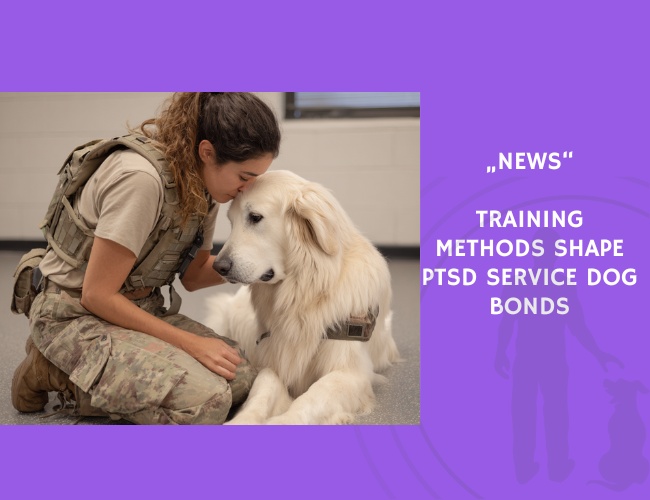In a 2019 study published in Frontiers in Veterinary Science, LaFollette et al. examined how military veterans with posttraumatic stress disorder (PTSD) interact with their psychiatric service dogs. The study focused on the associations between five distinct training methods, the severity of PTSD, dog behavior, and the human-animal bond.
Data were collected via an online survey from 111 post-9/11 U.S. military veterans (average age 40.1 years; 80% male) who had received a psychiatric service dog from a national provider. The dogs—mostly Labrador Retrievers or mixed breeds—were largely adopted from shelters or rescues. Veterans self-reported their use of five training styles: positive reinforcement, negative punishment, positive punishment, dominance, and bond-based techniques.
Frequent use of positive punishment (e.g., verbal correction) correlated with weaker bonds between veterans and dogs, including less eye contact (p < 0.0001), less trainability (p = 0.04), and increased fear behaviors in dogs (p = 0.003). Conversely, frequent use of positive reinforcement (e.g., treats, praise) predicted stronger closeness (p = 0.002), more playful behavior (p = 0.002), and increased attachment (p = 0.002). Bond-based methods (such as co-sleeping or shared routines) also enhanced closeness (p = 0.02).
Interestingly, the severity of a veteran’s PTSD symptoms was not associated with how they perceived their dog’s behavior or temperament. This suggests that training choices, not trauma levels, drive relationship outcomes.
The findings emphasize the importance of educating veterans and service dog providers on the behavioral consequences of different training methods. Positive and bond-based training not only improve welfare for dogs but also foster deeper, therapeutic relationships for veterans living with PTSD.
Source: Megan R. LaFollette, K. E. Rodriguez, N. Ogata, and M. O’Haire, Frontiers in Veterinary Science, Volume 6, February 11, 2019.










